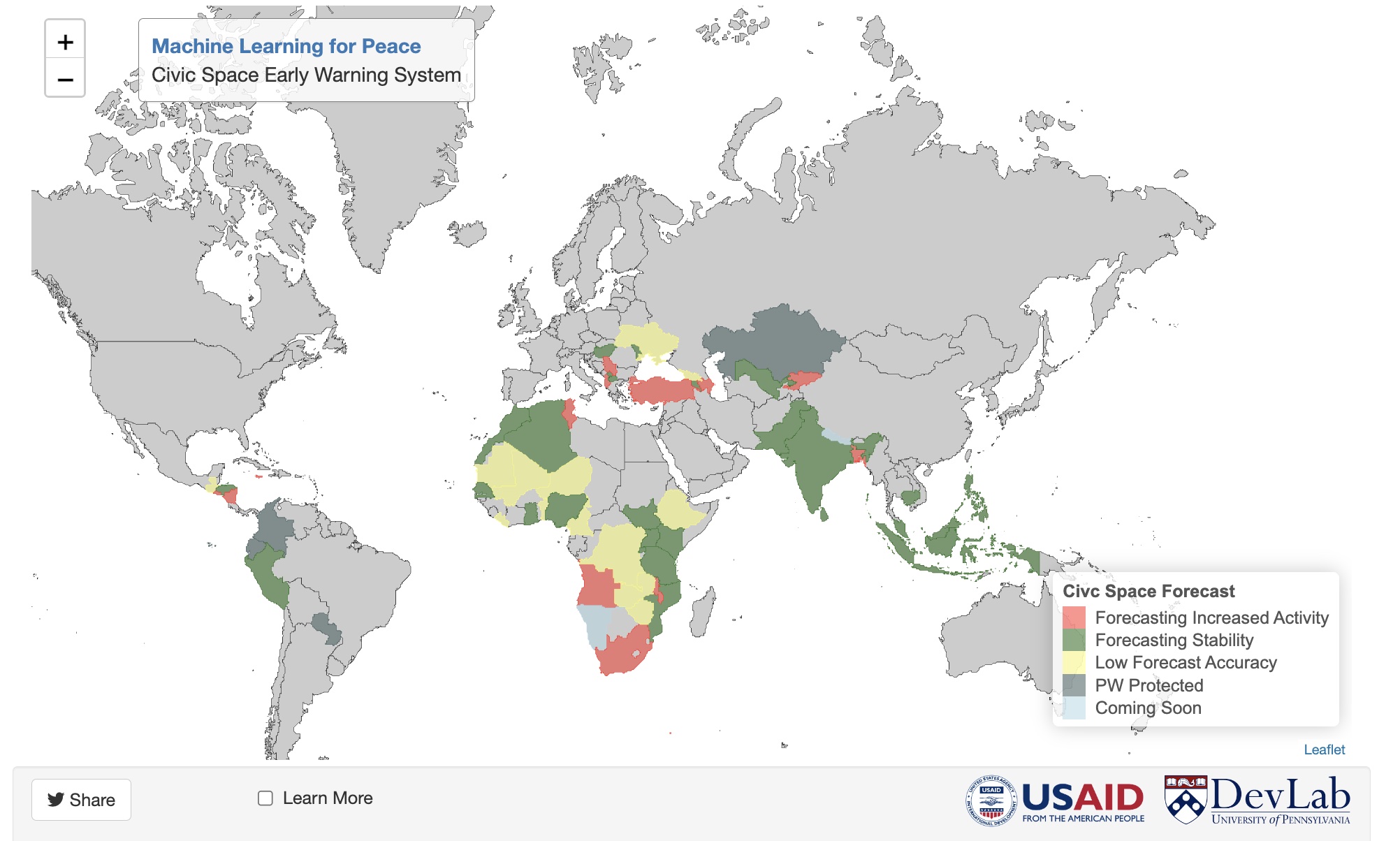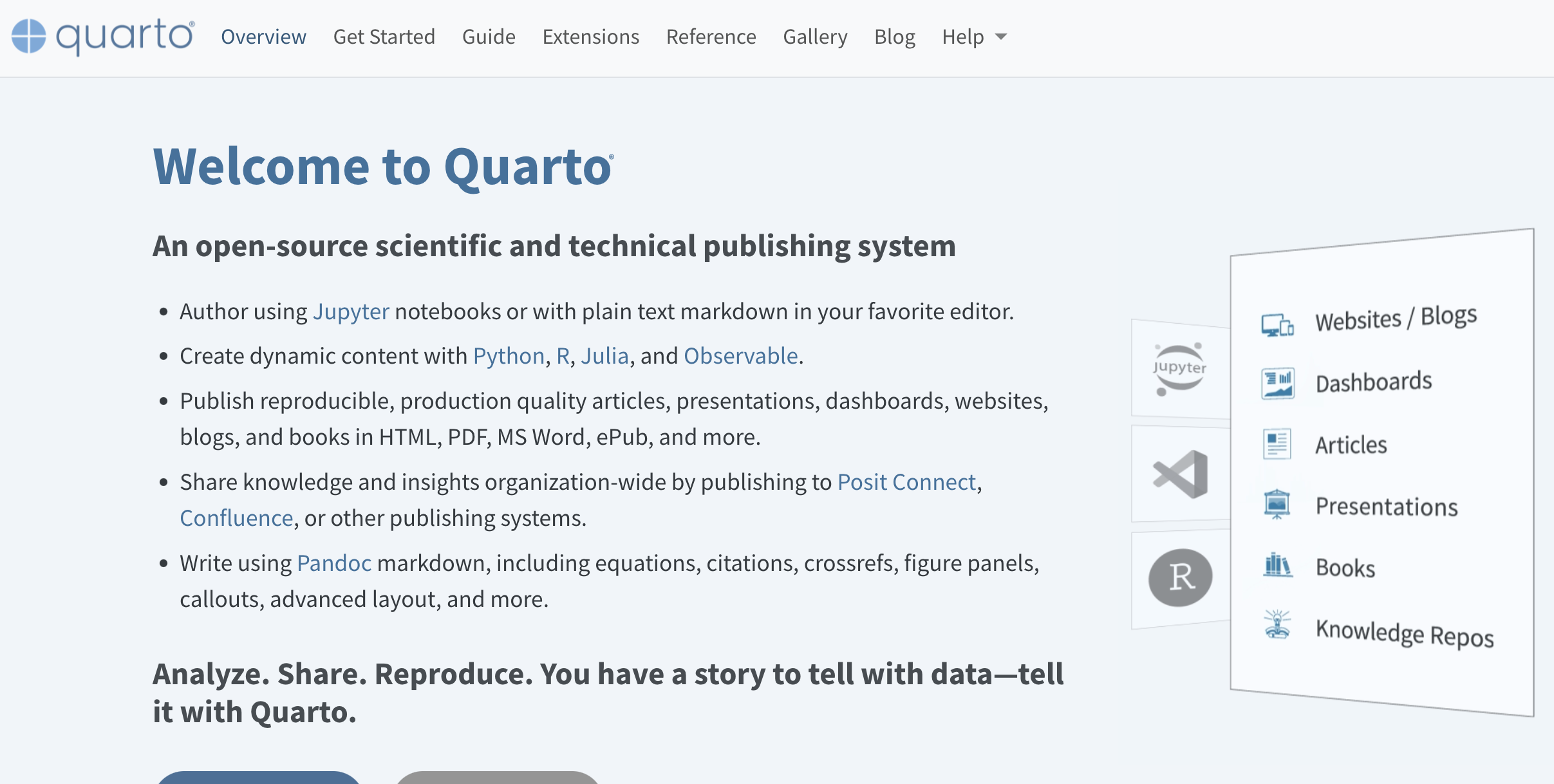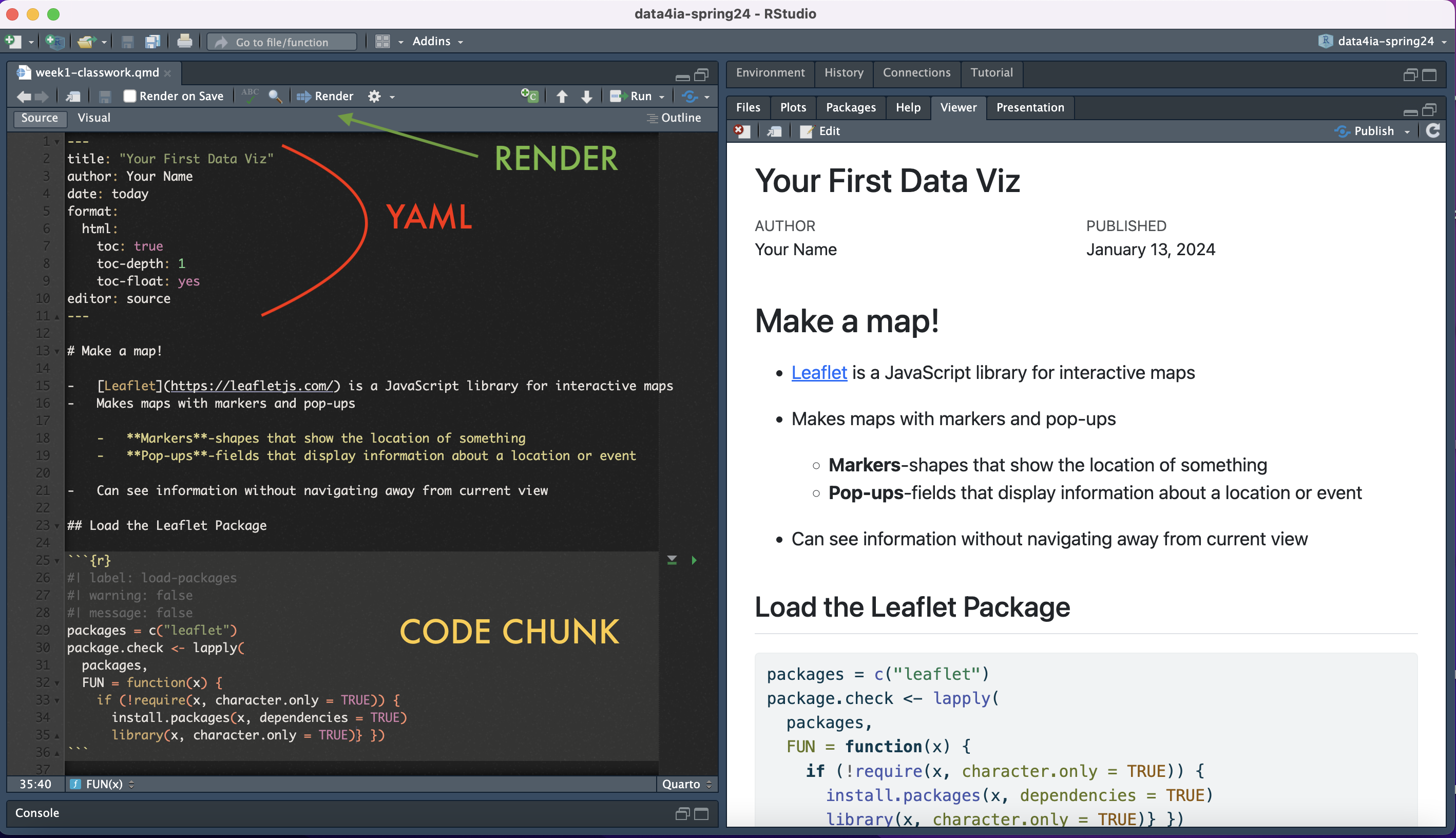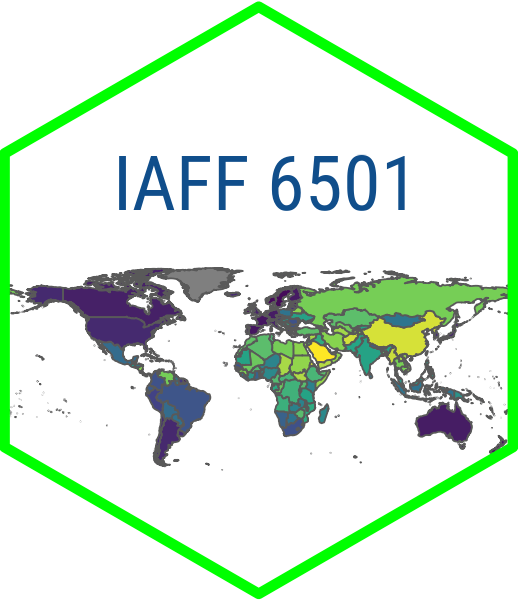Quantitative Analysis for IA Practitioners
IAFF 6501
Welcome to IAFF 6501!
Welcome to Quantitative Analysis for IA Practitioners!
If you have time before class begins, set up a Posit Cloud Account and access course workspace (using link from Blackboard) if you haven’t already…
Welcome!
Associate Professor of Political Science and International Affairs
Office Hours: By appointment over summer
Monroe Hall 472 or on Zoom
Data/IA Practitioner Relevant Experience
Research broadly concerned with democracy and governance
Data-IA Practitioner Research Collaborations
- Malawi (USAID + NDI)
- Honduras (NDI)
- Ghana (Ghana Centre for Democratic Development)
- Benin (CEPRODE)
Other Engagement
- EGAP Network with IA and MEL Practitioners
- Data analytic related consulting for NDI and IRI
- Trainings on program and impact evaluation for DRG orgs in DC
- Research presentations (USAID, World Bank, State Dept, NDI, IADB…)
Why Take this Course?
- International Affairs is changing!
- Data is everywhere and it is changing the way government works
- You will be a better consumer of data and research
- You can be a “bridge builder” between traditional analysts and data scientists on your team
Data Informed Dipomacy
Data is a critical instrument of diplomacy. When our workforce has data at their fingertips they are better prepared to engage diplomatically, manage effectively, and lead globally.
State Department Goals
- Cultivate a Data Culture
- Accelerate Decisions through Analytics
- Establish Mission-Driven Data Management
- Enhance Enterprise Data Governance
Open Goverment Data Act (2018)
- Requires government data assets to be published as machine-readable data in open formats
- Requires Chief Data Officers (CDOs) to be appointed at federal agencies
- Requires CDOs to develop and maintain comprehensive data inventories
- Has led to a proliferation of data science roles in the federal government
Open Source Intelligence
- Much of the analysis in the intelligence community is based on open source information
- Government agencies use a lot of the same datasets that we will be using in this class
Forecasting Models for Policymaking

Forecasting Models for Policymaking

Monitoring, Evaluation and Learning
- Another important use of data in international affairs is monitoring, evaluation and learning (MEL)
- MEL is a process that helps organizations track and assess the performance of their programs
- MEL is a key component of USAID, the World Bank and other agencies
- A major component of MEL is the use of randomized control trials (RCTs) and other research designs, which you will learn about in this class
Course Objectives
Overarching goal: Provide you with data analysis skills that:
You can apply to policy or programmatic issues and problems of importance to you [and that could advance your career goals]
Provide a foundation (and possibly interest!) for more advanced courses in the future
Will allow you to understand, interpret, and critically engage with the data analysis and conclusions of others.
Skills/Knowledge You Will Gain
- R statistical analysis and coding skills (and RStudio), with focus on “tidy” approach and reproducible research
- Quarto (html documents, PDFs, presentations, websites, books, blogs, …)
- How to access and “clean” data so that you can analyze it
- When you hear terms like “machine learning”, you’ll have some sense of what people are talking about
Structure of the Course
- Data Summary and Visualization
- Summarizing and communicating effectively with data
- Statistical Inference
- Making rigorous conclusions from data
- Modeling
- For prediction and forecasting
- For drawing causal conclusions
Structure of class sessions
Lecture and discussion of material
Classwork exercises in Posit Cloud (where I will be available to help as you work)
Introductions
Name
Program
Interests or potential areas where data analysis might be helpful for your goals or career
Assessment and Learning
Participation and In-Class Learning (10 percent)
3 Data Analysis Assignments (60 percent; 20 percent each)
Team Project (30 percent)
Prerequisites
Do I need a statistics or coding background to do well in this
course?
No!
We assume no prior background
Course Website
- https://data4ia.netlify.app/
- Let’s take a quick tour!
Software: R and RStudio

R is an open-source statistical programming language
R is also an environment for statistical computing and graphics
It’s easily extensible with packages
Software: R and RStudio

RStudio is a convenient interface for R called an IDE (integrated development environment), e.g. “I write R code in the RStudio IDE”
RStudio is not a requirement for programming with R, but it’s very commonly used by R programmers and data scientists
Quarto

Quarto in RStudio

Posit Cloud
We will access and use these programs within Posit cloud (no need for you to install software, etc)
If you haven’t already… use link on Blackboard to set up free account
Let’s get going . . .
Your first Data Visualizations
Let’s go to Posit Cloud
- Work on first data viz
- If done, work on getting started with R and RStudio

